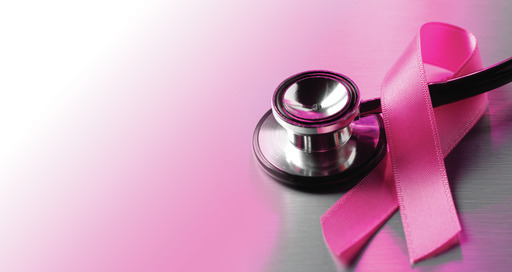(CortacaToday) — Breast cancer is one of the most common cancers in women, with as many as one in eight developing the disease during their lifetime. It occurs when cells in breast tissue grow uncontrollably, leading to a malignant growth. During Breast Cancer Awareness Month, it’s a reminder to prioritize your breast health by staying informed, scheduling regular screenings, and addressing any concerns with your healthcare provider. Early detection is key, and institutions like Roswell Park Comprehensive Cancer Center are here to offer advanced screening options and support to aid in identifying the disease at its earliest stages.
The Risk Factors for Breast Cancer
Anyone can get breast cancer, and most women who develop breast cancer have no known risk factors. The causes remain unclear, but some factors place you at high risk for the disease such as a family history of breast and or ovarian cancer, a known genetic mutation in your family or having radiation treatment to the chest area from a prior cancer. However, the most important breast cancer risk factor is age, and the risk increases with age. Women in their 30s and 40s can get breast cancer, and should be check regularly, especially if they have major risk factors. Most women who develop breast cancer are in their 50s, 60s and older, but that doesn’t mean women can’t develop breast cancer at a young age. In fact, research shows that there has been a rise in breast cancer cases among women younger than 50. So, how can you stay on top of your breast health? Start by scheduling your yearly mammogram.
What is a Mammogram?
For women over the age of 40, getting a yearly mammogram is an essential part of maintaining their breast health, and starting screening mammography at age 40 saves the most lives. Mammography is the most effective screening tool to detect breast cancer, and at Roswell Park, our experts use 3D mammography, or tomosynthesis, to offer more accurate screenings. Approved by the Food and Drug Administration in 2011, 3D mammograms have significantly improved cancer detection and have reduced the need for additional imaging by up to 17%. 3D mammograms. This advanced technology offers more accurate images, especially in cases of overlapping tissue, reducing the need for callbacks for additional views. “The 3D mammogram is really proving itself to be a better mammogram in that it reduces the need for additional views and may reduce patients’ anxiety,” says Ermelinda Bonaccio MD, FACR, Chair of the Department of Diagnostic Radiology at Roswell Park Comprehensive Cancer Center. “It’s also a more sensitive mammogram for picking up small breast cancers,”. While most mammogram screenings come back normal, occasionally additional imaging may be required for women with dense breasts.
What Does it Mean to Have Dense Breasts?
Breast density refers to the ratio of fibroglandular tissue to fat in the breast. Dense breasts have more tissue and less fat, which can make detecting breast cancer on a mammogram more challenging, as both dense tissue and small cancers appear white on imaging. Women with dense breasts should seek a 3D mammogram, which improves cancer detection in both dense and non-dense tissue. Additionally, for average-risk women, an annual screening ultrasound may be recommended alongside mammograms. While women with dense breasts have a slightly increased risk of developing breast cancer, they are not considered high-risk unless other factors, such as a strong family history of breast cancer or known genetic mutation in the family are present. More than half of women under age 50 have dense breast tissue, a percentage that drops to 40% for women in their fifties and to a quarter for those over 60. Dense breasts cannot be identified by feel or physical exam; they can only be detected through a screening mammogram.
Early Detection Saves Lives
Early detection is key, and prioritizing regular screenings is essential for maintaining breast health and ensuring the best possible outcomes. The five-year disease-free relative survival rate for early-detected invasive breast cancers is 98%, compared to just 86% for those diagnosed at a later stage. By taking proactive steps toward early detection, you can gain greater control over your health. In honor of Breast Cancer Awareness Month, take care of yourself and schedule your screening today—early detection truly saves lives.
Learn more at https://www.roswellpark.org/cancer/breast. To make a mammography appointment online, visit https://forms.roswellpark.org/mammography-appointment, or call 1-800-767-9355.



